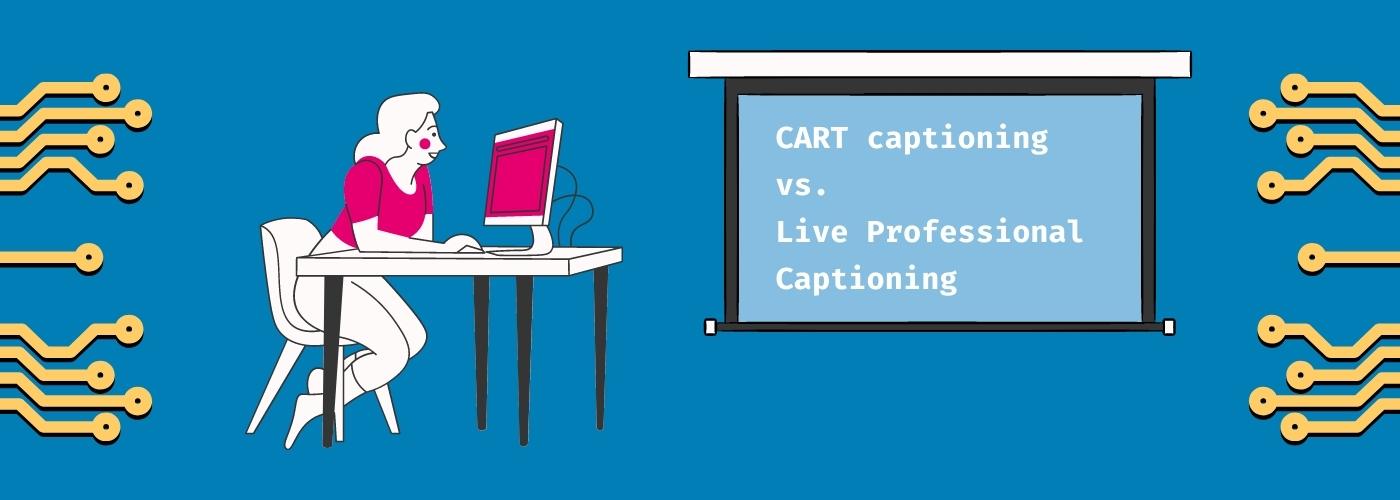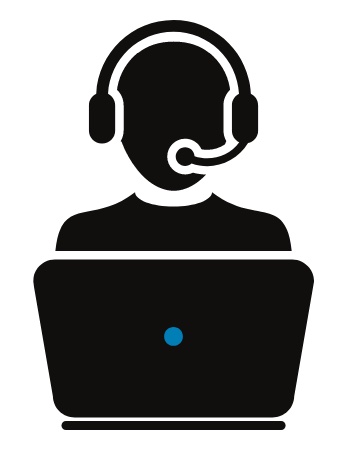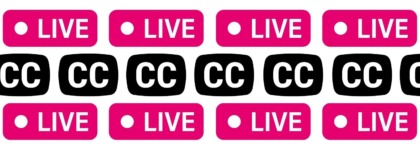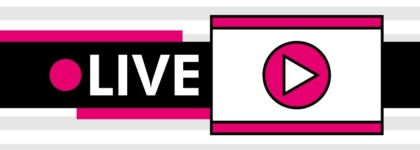Live Professional Captions vs. CART Captioning: What’s the Difference?
Updated: June 23, 2023
Learn how technology affects accuracy ⚙️
The demand for live video has necessarily taken the world by storm, as organizations increasingly look to virtual alternatives for hosting events. As a result, live captioning has also seen a spike in popularity, but the variety of methods available – including Live Professional Captioning and CART captioning – can make it confusing to know which is right for you.
Live captioning at a glance
Generally speaking, live captioning is the process of creating captions to describe spoken content that’s happening in real-time. There are many ways to accomplish this, but not all processes are created equal.
Automatic captioning solutions are often attractive as a more affordable, low-fuss method of live captioning, but actually have notoriously low accuracy rates (that could dip as low as 50%). While many believe that something is better than nothing when it comes to captions, the automatic speech recognition (ASR) technology that powers auto-captions is often proprietary, not market-tested, and simply not up to par with accessibility standards.
On the other hand, more accurate methods of live captioning include the use of a human captioner. Some examples of this include Communication Access Realtime Translation (CART), which connects a stenographer to an audio feed so they can translate all spoken dialogue into text via a separate feed, or 3Play’s Live Professional Captioning, which relies on experienced voice writers to create high-quality, platform-integrated captions in real-time.
Learn more about Live Professional Captioning
What is CART captioning?
For a long time, CART services were understood to be synonymous with live captioning. Introduced in the 1980s, real-time stenography for creating open captions was known as Communication Access Realtime Translation, and it was revolutionary for its time.
A CART stenographer is trained to listen to a live audio feed, and simultaneously transcribe what they’re hearing using phonetic shorthand. The transcript that is generated by what they type is then projected on a large screen or computer monitor that is visible to the entire audience. Many different vendors provide CART services, but communication is typically via email between the organization requesting captions and the captioner.
Since the development of CART captioning, the industry has continued to evolve and diversify, and more options for live caption generation continue to be introduced. The primary difference here lies in the delivery: CART captions are often delivered via a second screen or a streaming link to view live text.
How is 3Play Media’s Live Professional Captioning different?
With Live Professional Captioning (LPC), 3Play Media has created a disruptive new way to live caption. As our highest-quality live caption offering, LPC matches your event to a specially trained professional captioner who will voice write captions for your live event.
3Play offers a variety of delivery methods, including direct post-back to your live event/session or caption display on a dedicated external webpage (referred to as “second screen” captioning). Regardless, the thing that sets us apart from other live captioning services is the unprecedented level of transparency and visibility offered by our all-inclusive account platform. Our system notifies you when your event has been matched with a captioner, allows uploads for custom wordlists or speaker identifications, and provides an efficient scheduling workflow that allows management of all your live events from one centralized location.
Unless you use a streamless workflow, your 3Play Media Live Professional Captioning event includes a failover mechanism that defaults to our proven Live Automatic Captioning in the event that your captioner disconnects – ensuring that your event is never missing captions, even in the worst-case scenario.







